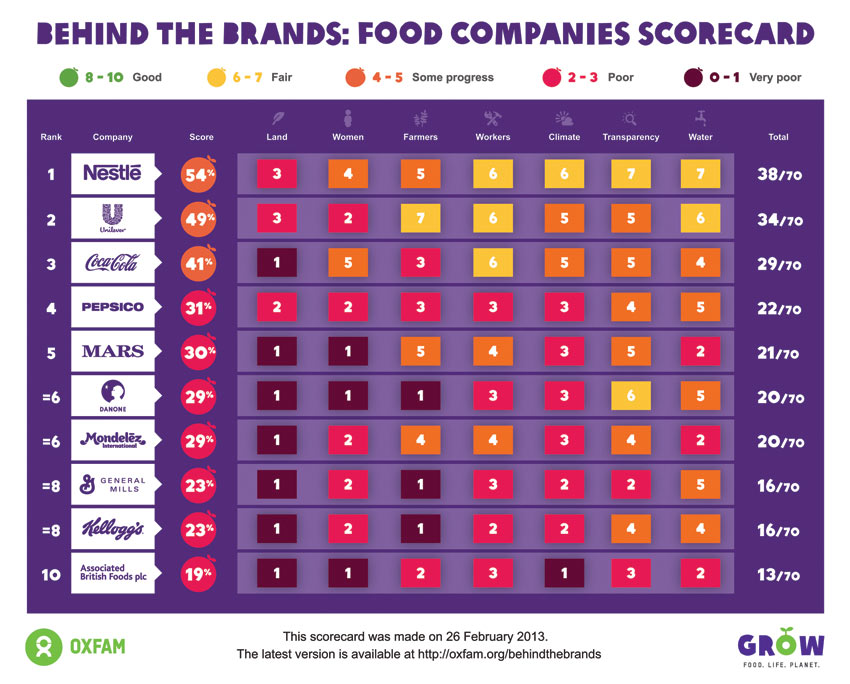Oxfam slams global food and beverage giants over CSR accountability
Stakeholder pressure on multinational companies is rising. Last July AB-InBev got rapped by the Berlin-based corruption watchdog Transparency International (TI) for not disclosing enough about what it does to fight corruption. Six months later, in February this year the UK charity Oxfam released a report, “Behind the Brands”, which, though wider in scope than TI’s, came to a similar conclusion: multinational food and beverage companies, such as Nestlé, Coca-Cola and PepsiCo, are failing on CSR goals.
At a time when public confidence in food production has been hit by the horsemeat scandal and concerns over obesity and diabetes are growing, research by Oxfam shows that none of the “Big Ten” multinationals score a good overall rating on their public policies and commitments covering their supply chains. Oxfam also accuses these companies of being overly secretive, making claims of sustainability and social responsibility which are difficult to verify on the ground.
Oxfam ranked the companies according to their standards across seven different areas including the transparency of their supply chains and operations, how they ensure the rights of workers and farmers who grow their ingredients, how they protect women’s rights, the management of water and land use, and policies to reduce the impacts of climate change.
Taking a moral line, the authors of Oxfam’s report criticise corporate sustainability programmes for being focussed on specific issues such as water use or training women farmers, while failing to address the root causes of hunger and poverty.
“Paying adequate wages to workers, a fair price to small-scale farmers, and assessing and eliminating the unfair exploitation of land, water and labour are all steps which clearly lie within the means of these hugely powerful companies", the report says.
“Companies know and disclose too little about the injustices flourishing in their supply chains, and continue to cherry-pick particular initiatives. And while philanthropic projects, certifications, round tables and sustainability programmes are certainly welcome, they are not long-term solutions to deeply entrenched injustices. Such programmes also do not address the full range of the industry’s human rights risks and impacts”, it concludes.
On its blog Oxfam reported that there has been a great response to its report so far, showing that consumers clearly care about the people behind the foods they buy. Still only a handful of the “Big 10” companies went to some length to engage positively with the arguments that were published, according to Oxfam. “With a few exceptions, we feel that their responses overall have been tepid and largely predictable at best – an underwhelming reply to the scale and urgency of the problem, given the undoubted power that they wield”, says Oxfam.

